Why do the Nordic countries react differently to the covid-19 crisis?
Given the striking similarity of the Nordic societies, it is interesting to note how differently some of them have reacted to the current covid-19 crisis. For example, Denmark and Norway were quick to implement a work and school lockdown and close their borders. In contrast, Sweden has raised international interest with a comparatively lax approach to enforcing social distancing by legal measures. Irrespective of which approach is ‘correct’, the diverse reactions have disclosed the different ways each country is run, particularly with respect to the relationship between government and administrative authorities, such as, health boards, as well as to the concerns over the fragility of the democratic system as a whole. These differences are often rooted in historical traditions and experiences. Here, Johan Strang, Associate Professor at the Centre for Nordic Studies at the University of Helsinki, considers some of the reasons for these differences.
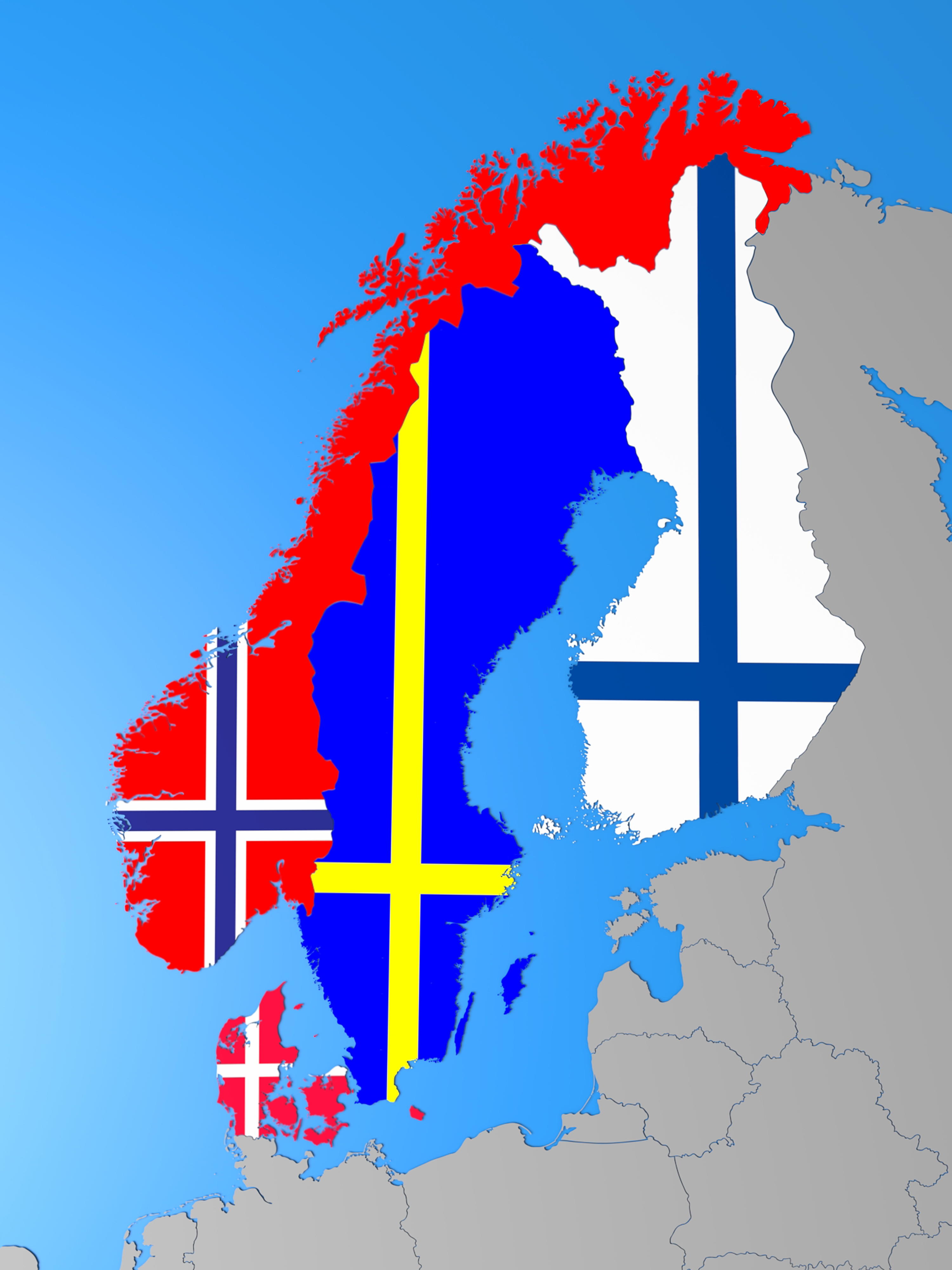
*Please note that this article focuses only on the Nordic countries mentioned (Denmark, Finland, Norway and Sweden) and not the whole Nordic region in its entirety.
Different ways of organising governing bodies
One of the most fundamental reasons for the different reactions to the covid-19 crisis in the Nordic countries is the differing administrative traditions in the east and west of Norden. Whereas Finland and Sweden have comparatively small ministries and autonomous administrative authorities, the politicians are more directly in charge of the administration in Norway and Denmark. Thus, it was easier in Denmark and Norway to react quickly with political decisions - and even to overrule authorities and their expertise when it was considered politically necessary. The Danish government swiftly imposed restrictions and closed its borders even though the epidemiologists at the Danish Health Authority (Sundhedstyrelsen) said it was unnecessary.
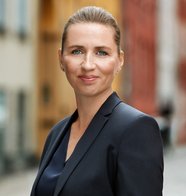
In Sweden, the state epidemiologist is more often on television than the prime minister, and is widely considered to be the 'captain' who will ride Sweden through the storm. In both Norway and Denmark, the prime minister is a clear front figure. In Finland, Prime Minister Sanna Marin is also a front figure, but constantly emphasises that she follows the recommendations of THL (Terveyden ja hyvinvoinnin laitos, or the Finnish Institute for Health and Welfare).
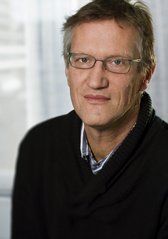
PICTURES: The front figure at press conferences in Denmark, Norway and Finland is the Prime Minister, whereas in Sweden it is more usually the epidemiologist Anders Tegnell from the Swedish Public Health Authority (photo left). Photo right: Prime Minister of Denmark, Mette Frederiksen, statsministeriet.
Past experience influences current approaches
The fact that Finland, despite the same management tradition as Sweden, has acted differently from Sweden may have something to do with Finnish historical experiences, not least from the Second World War. There is a certain preparedness to act decisively and collectively on abrupt crises. The lesson from the war was that if everyone follows the orders of the state, then everything will be all right, but there is also an expectation that the government will be prepared to act quickly and vigorously. Finland is also better equipped than the other Nordic countries with respect to emergency stocks etc, something which has long been of little concern to the other Nordic countries. In Norway and Denmark, the war experience was more to do with the responsibility of the individual being important, while Sweden can perhaps be said to lack a comparable crisis experience.
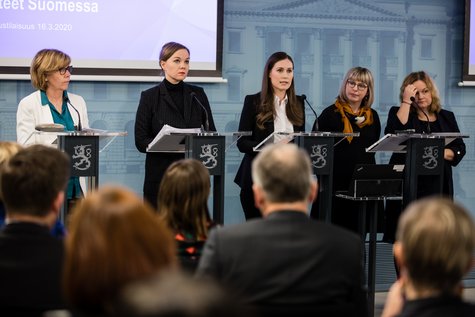
PICTURE: Finland is arguably more prepared for crises. The Finnish government press conference on 16th March 2020 is shown here, when the closure of schools was announced. Photo: Laura Kotila, Flickr, Finnish Government Office.
Sweden goes it alone – why?
- Unquestioning self-confidence: Sweden is the only Nordic country, and one of the few countries in Europe, that has not closed its schools and introduced rigorous, legally enforced social distancing measures. It takes a lot of self-confidence in order to act differently than almost every other country. This is something that Sweden has to a greater extent than the other Nordic countries, which are more heavily characterised by the small state attitude, namely, that it is important to follow others. Identifying and explaining where this Swedish self-confidence comes from is one of the most difficult and exciting questions for philosophers and cultural historians interested in the Nordic countries. My own theory is that it is a question of temporality. Sometimes during the 20th century, the heyday of the Swedish model, an idea emerged that Sweden was one of the most modern countries in the world, and thus 'ahead' of other countries. So, if you, like Sweden, are at the forefront of human development, there is no point in comparing yourself with other less advanced societies. Instead, there is a willingness and a custom for solving every question independently.
- Central role of the economy: The economic aspects have been much more central in the Swedish discussion, and at a much earlier stage, than in the other Nordic countries. It is not beyond the realms of imagination that this has to do with Sweden in many respects being more neoliberal and driven by finance. At the same time, however, it is also important to remember that economists have historically had a more central place in the debate in Sweden than in the other Nordic countries. The Swedish welfare state, ‘folkhemmet’ (The People’s Home), was in many respects primarily an economic project. Its key architects were economists like Gunnar Myrdal, Ernst Wigforss, Bertil Ohlin, Gösta Rehn and Rudolf Meidner. And the focal point of knowhow in Sweden still tends to be people from the economic field. If I remember Henrik Stenius, the founder of the Centre for Nordic Studies at Helsinki University correctly, the central expertise in crisis situations is economists in Sweden, historians and philosophers in Finland, lawyers and historians in Norway, and political scientists in Denmark. This is not to say that the Swedes prioritise the economy over health and human life, or that they are making callous cost-benefit analyses. Rather, there is a strong tradition in Sweden of thinking that a functioning economy is a prerequisite for people's well-being and health. The security of the ‘folkhem’ could only be achieved through a strengthened economy, and conversely, the cruel social and psychical consequences of the 1990s-recession in Sweden and Finland are still fresh in people’s memory, particularly in Finland.
- Swedes do what they are told: In the other Nordic countries - perhaps especially in Denmark - Sweden has a reputation for being a paternalistic, prohibitive society, which appears not to be in keeping with the liberal attitude Sweden has had during the corona crisis. How does this add up? If you look more closely, it is arguably not so much prohibitions per se that the Danes make fun of, but how obediently the Swedes follow different recommendations. If Danish anecdotes are to be believed, when the Swedish public health authority (Folkhälsomyndigheten) recommends eating five slices of bread per day, then the Swedes eat five slices of bread per day. The stereotype is more that the Swedes naively trust that the state knows what is best for them. Incidentally, this is precisely the same logic that pervades Sweden’s handling of the covid-19 crisis; the Swedish authorities trust that the Swedes in general will follow the recommendations of the state epidemiologist to wash their hands and keep away from each other. There is no need to legally enforce social distancing measures. That said, in a broader comparative perspective, trust in authorities is high throughout the Nordic region (including Denmark), so there are certainly limitations to this explanation of Swedish exceptionality.
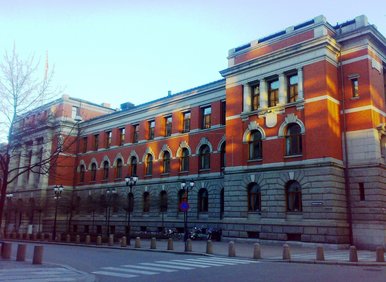
PICTURE: In Finland and Norway, democracy is more legalised than in Denmark and Sweden. Norway still has the most lawyers per capita among the Nordics. Photo: The Supreme Court of Norway, By Bjoertvedt - Own work, CC BY-SA 3.0.
Democracy plays out differently
Individual rights and other constitutional aspects of the measures against the pandemic have been much more central to the debate in Finland and especially Norway than in Denmark and Sweden. This might be because Finland and Norway are younger nations and more legalised democracies than Denmark and Sweden. For historical reasons, the constitution has a special role in both Finland and Norway. In Finland, the old Swedish laws were of special importance during the Russian period (1809-1917) and there has been repeated democratic crises during the 20th century which have emphasised the need for constitutional protection of democracy. In Norway, the Eidsvoll constitution of 1814 holds a special place in the national narrative, and the leading politicians during the 19th century were often lawyers. Norway still has the most lawyers per capita among the Nordics. Denmark and Sweden would rather stress the primacy of politics over law. When, in early April, the Swedish government proposed a bill that would give it additional powers to tackle the covid-19 crisis, the main talking point was not the possible consequences for the rights of the individual, but the fact that the bill would enable the government to sidestep the parliament (Riksdag). Historically, the primacy of politics over law was part of the legal philosophy of the welfare society (Scandinavian legal realism). The leading idea was that the law should not be able to prevent progressive reforms. Instead, the law was seen as a tool at the hands of the legislators. This way of thinking requires an historically-conditioned confidence in the strength of democracy and its ability to resist forces that want to overthrow it from within. So while Denmark and Sweden might be characterised by what can be termed a democratic self-confidence (or alternatively naivety), Norway and Finland are more concerned with the fragility of democracy at times of crises.
Don’t knock ‘the war effort’
An interesting final observation is how strong the support is for a particular country’s approach as the correct one. In Sweden, people with an alternate view to the country's approach have been scolded as "amateur epidemiologists", and in Finland even drastic measures, like isolating the whole province of Uusimaa, were implemented without much opposition or debate. Support for the Nordic governments is stable and increasing across the region, and newspapers tend to inflate news that reinforce the feeling that "our" own country is on the right track. But the longer the crisis lasts, the more room there seems to be for critical debate. This applies to all of the Nordic countries, but perhaps especially to Sweden, something which can be attributed to Sweden's approach being more controversial, or perhaps because Sweden is a bigger country where there is more room for dissenting opinions - its well-known conformism notwithstanding. References to other Nordic countries form a central part of these emerging debates, and in this sense, it is interesting to note that the crisis has revived the intra-Nordic comparison as a national political praxis across the region. In times of crisis, the Nordic countries might not act similarly, but they remain eager to learn from each other in order to be better prepared the next time.
Further reading:
- Francis Sejersted, The Age of Social Democracy: Norway and Sweden in the Twentieth Century (Princeton University Press, 2011).
- Johan Strang ‘Scandinavian Legal Realism and Human Rights: Axel Hägerström, Alf Ross and the Persistent Attack on Natural Law’ Nordic Journal of Human Rights, 36, 3 (2018) pp. 202-218.
- Pauli Kettunen 'The Society of Virtuous Circles' in Models, Pauli Kettunen and Hanna Eskola, eds, Models, Modernity and the Myrdals (University of Helsinki, 1997).
- Sheri Berman, The Primacy of Politics (Cambridge University Press, 2006).